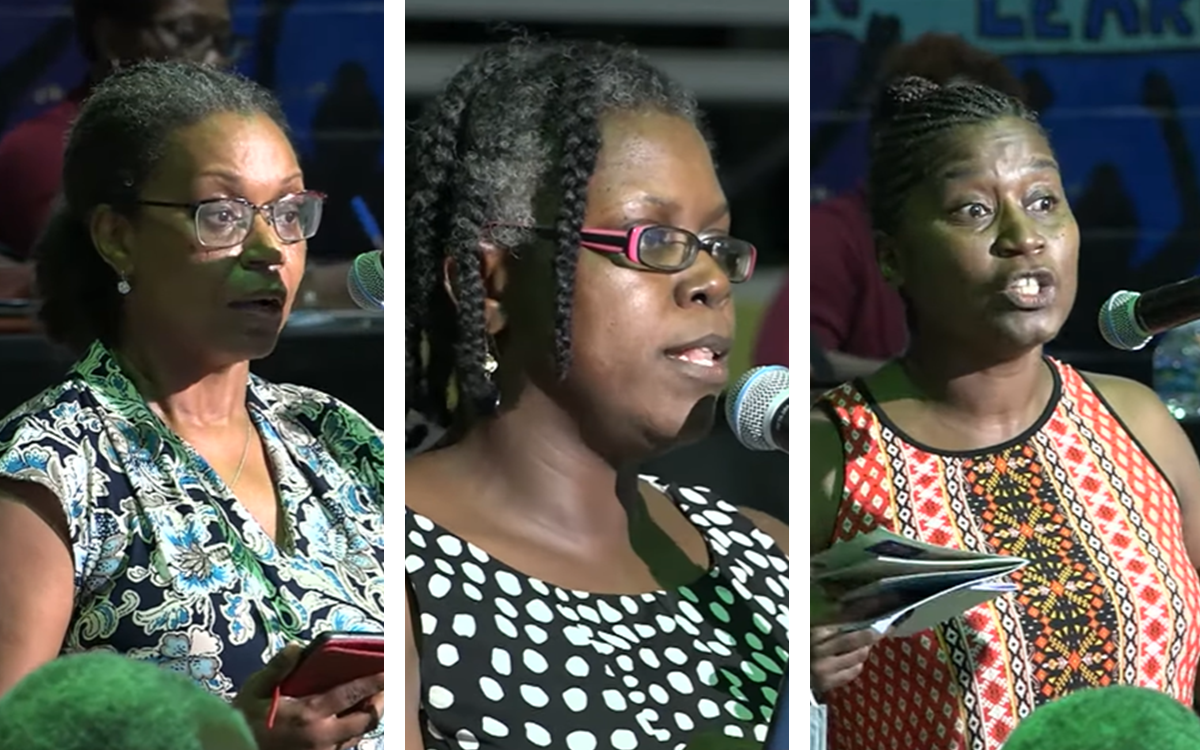Expert Challenges Government's Approach to Education Reform During Public Consultation

November 18, 2023
In the fourth Public Consultation on Education Transformation, while many supported reform, social development advisor Sherry-ann Clarke expressed concerns about completely replacing the current education approach, suggesting that transformation can occur within the existing system.
While most participants in the fourth Public Consultation on Education Transformation supported the need for reform of the system, there were some who challenged the approach of the government to the exercise.
One dissenting voice came from social development advisor Sherry-ann Clarke, who raised concerns on the approach of completely throwing out the current education approach in favour of a radically new system to help children reach their full potential.
She said while she had no difficulty with the need for change, much of that transformation can happen within the current system.
“If the goals of our reform are around equity and getting more balanced, rounded students – which nobody disagrees with – the content of some of the proposals is troubling to me,” said Clarke, the daughter of two lifelong educators.
Noting that she was particularly troubled by the proposed two-tier system relating to junior colleges, she said Barbados is at risk of throwing away the baby with the bathwater or undermining some of the goals set for this reform process. She agreed that there was no argument against the need to invest more in special needs education.
“I still think there is fundamental reform and better implementation that we could do within the existing system,” she said to applause from the audience gathered at the Deighton Griffith Secondary School.
She said the stated benefits to the junior college of excellence, including personalised education, holistic development and transitional guidance, are goals that could be set and achieved within the present school system of first to fifth forms.
“I would hope these are in all of our schools. Do we need to put them in a separate institution to do that? I don’t think so,” Clarke added.
She urged the ministry officials gathered to give serious consideration to keeping the current system with an infusion of some of the stated reform goals.
Clarke charged that the proposed changes limit the interaction of people who think differently, in reference to the specialisation to be associated with some schools.
“It is good for an artist to sit down next to a STEM [Science Technology Engineering and Mathematics] head…. I see nothing here to suggest there is sufficient basis for a wholesale change. A lot of what is being proposed from getting out of this two-tier system can be done by reforming and better implementing that first to fifth-form system that we have,” she contended.
Naila Robinson, an attorney and parent, voiced her support for reform but asked the panel whether the new schools would be managed by politically appointed boards, how heads would be allocated and what measures would be in place to assess the performance of the proposed new system. She suggested that the wider public does not understand the proposals and there may be a need to put them in simpler language accompanied by modern data so that the conversation is based on current information.
Nicole Foster, an educator at the University of the West Indies and a parent of two boys, contended that no one is challenging the need for educational reform.
“The problem that I and many like me have is the process, the nature and scope of the consultations and the substance of what is being proposed and how it will impact our children and indeed the record of Barbados…,” she said.
Foster challenged the perception that the process has been widely engaging and urged the ministry to relook its outreach to determine whether the widest views have been captured.
She said while much is “fuzzy”, the reform has a very clear implementation date of September 2025
“What is the rush,” she asked. “We need to be sure for the first two to three years that we have the funds to support what is being proposed.… We need to have some credible basis on which we are going to move forward.”
(SP)


